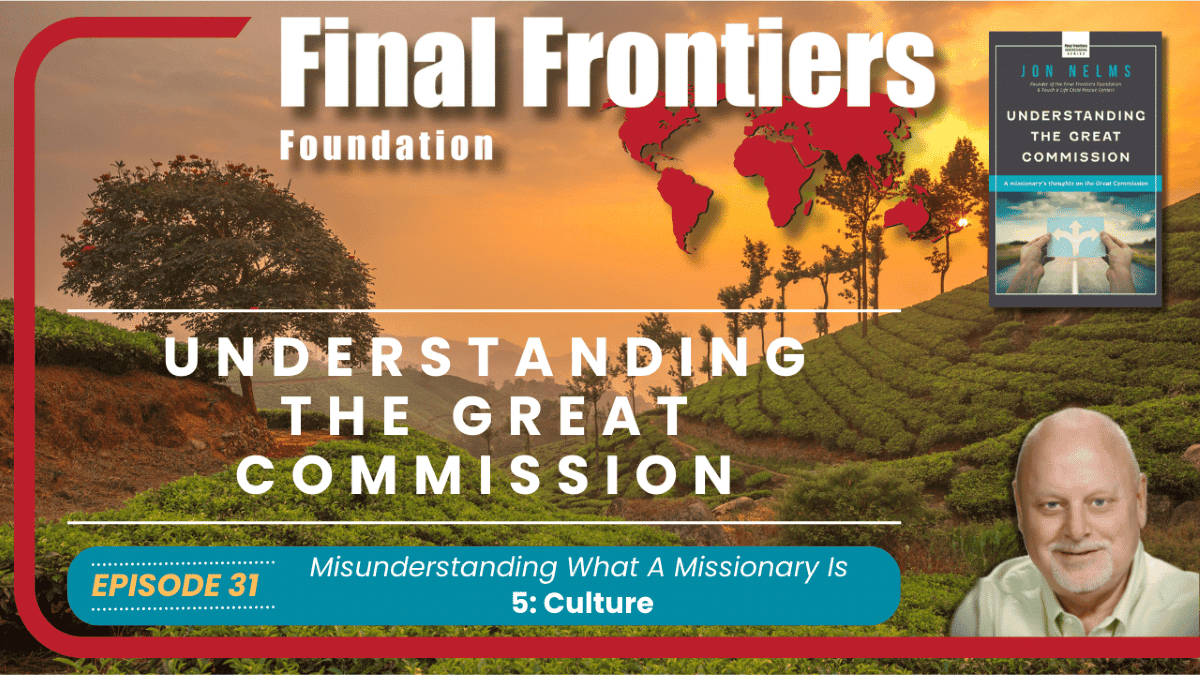UNDERSTANDING The Great Commission Part 5 Culture
In my youth, I thought a missionary looked like me but went to preach to people who did not look like me, dress like me or even eat like me. They were different.
This misunderstanding has led many missionary families to return home. In fact, over half the missionaries who make it to the foreign field don’t last beyond their first term. All the years of deputation and language study were for nothing. When questioned, the primary reason given for not returning was their inability to adapt to the culture.
Missionaries, justified or not, have universally gained the reputation that we try to change the culture of the people we go to reach. After bringing them to Christ we often unintentionally try to turn them into American Christians, teaching them to wear suits and ties to church when their own President doesn’t even dress that way. Our example influences their clothing styles, musical preferences, eating habits, and ministry schedules. National churches are happy to meet in a house or under a tree until they learn that American churches have buildings with steeples. They are not distracted by babies crying, roosters crowing, or even the occasional dog sleeping at the pastor’s feet—until we teach them they are supposed to be distracted by those things and make arrangements to prevent them.
When I believed that a missionary was someone like me who went to preach to those who were not like me, I was wrong. In our failure to reach them, the problem is not that they are not like us, but that we are not like them. Paul emphasized this when he said, “I am made all things to all men, that I might by all means save some. And this I do for the gospel’s sake, that I might be partaker thereof with you” (I Corinthians 9:22b-23). In other words, Paul said, “I never tried to make you like me; I became like you so that I might become one of you and bring you to Christ.” We, as missionaries, should not have to endure other cultures; we should assimilate them.
Points to Ponder
- Imagine if your pastor was from an Asian tribe. He only wore his tribal clothing (a modest, mini-skirt-length tunic). He always ate his traditional food (grub worms and roasted dogs). He only allowed his preference for musical instruments (bamboo flutes and drums) and insisted everyone sit on the floor. How effective would his ministry be? How enticing would it be for your neighbors to join your church?
- When we force our cultural preferences on other societies, those who do convert are often seen as traitors to their own people, desiring to be like foreigners rather than their forefathers. This change diminishes the strength of their witness.
- What do you think Paul meant by becoming one of them? Consider that he had to do that everywhere he went. I wonder if he experienced culture shock. Assimilation exterminates culture shock.













